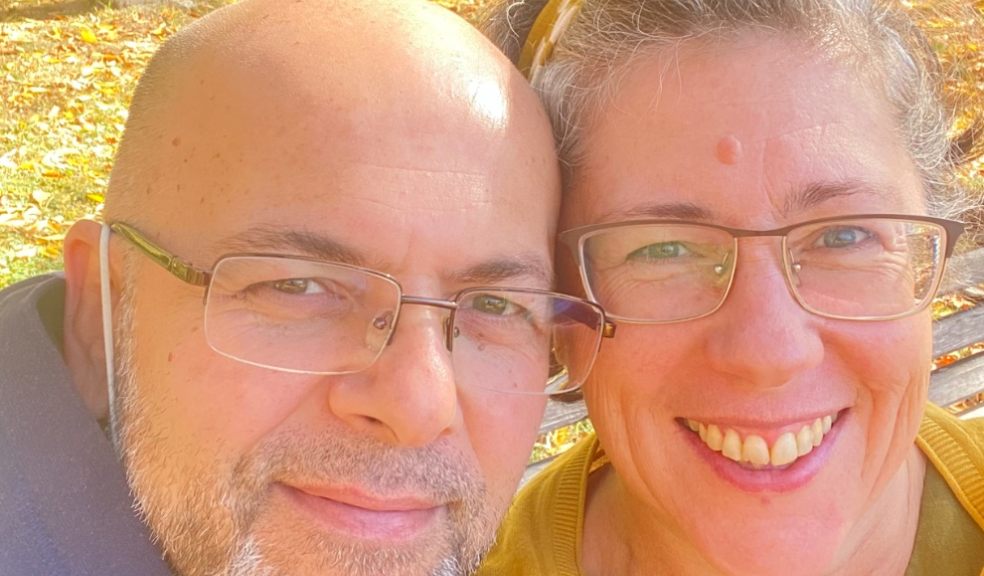
How to spot the signs of Parkinson’s… and what to do if you do
Parkinson’s disease is the fastest-growing neurological condition in the world - currently, without a cure. One in 37 people alive today in the UK will be diagnosed with Parkinson’s in their lifetime1. It is therefore imperative to spot the symptoms of the condition early and to understand what to do next.
Rosie Hydar, who runs a local in-home care introduction service, Hub Care Support Exeter, was inspired to launch her business following her own experience with her father and husband, who have both been diagnosed with Parkinson’s. “Their diagnoses were similar but different. Having the experience with my dad meant that when my husband started to develop the symptoms, I could spot them early and knew what to do next. It is because of this that I feel so passionately about sharing my experience and hopefully supporting others to spot the early warning signs. Raising awareness is key, which is why I’ve put together this guide on how to spot the early signs of Parkinson’s and what you need to do when you do…”
What is Parkinson’s?
Parkinson’s is a disease that affects the brain. It’s known as a degenerative neurological condition, meaning that symptoms get worse over time. While it tends to affect people from middle age onwards, Parkinson’s disease has in fact been known to affect all ages.
Individuals with Parkinson’s experience a deficiency in dopamine, a crucial neurotransmitter. This deficit arises from the deterioration of essential nerve cells responsible for the production of dopamine in the brain. Dopamine plays a pivotal role in facilitating movement-related messages from the brain, encompassing activities such as walking, speaking, writing and emoting. As dopamine levels diminish, the brain’s ability to regulate becomes impaired, leading to the onset of Parkinson’s symptoms.
What are the symptoms?
There are many different symptoms associated with Parkinson’s, but the order in which these develop, and their severity is different for each individual. There are three main symptoms, which are:
- Tremor – shaking, which usually begins in the hand or arm and is more likely to occur when the limb is relaxed or resting.
- Slowness of movement – also referred to as bradykinesia. Physical movements become much slower than normal, making everyday tasks more difficult, and result in a distinctive slow, shuffling walk with very small steps.
- Muscle stiffness – stiffness and tension in the muscles can make it hard to move around and make facial expressions and can result in painful muscle cramps.
These symptoms are often referred to by doctors as Parkinsonism but are not the only symptoms related to the condition – in my experience, not everyone develops all of three, as my dad didn’t have the tremor. Parkinson’s can also cause a range of other physical and mental symptoms including:
- Balance problems
- Loss of sense of smell
- Depression and anxiety
- Mild cognitive impairment – slight memory problems and issues with activities that require planning and organisation. Often referred to as ‘Parkinson’s fog’2.
My experiences with Parkinson’s
Knowing the signs from my father who developed Parkinson’s proved to be invaluable, as I recognised the symptoms in my husband very early on. My dad initially hid his struggles, but the signs were there. He gradually slowed down, increasingly avoiding physical activity, and experienced episodes of ‘Parkinson’s fog’. He then developed the stoop and gait before he acknowledged the diagnosis, although he never displayed the classic tremor associated with the condition.
When my husband began experiencing a persistent stiffness in his shoulder, I began to recognise the gait and stance from my father. With ‘Parkinson’s fog’ and depression exacerbating his symptoms and, unlike my dad, the classic tremor, he had to work hard to stay happy and look after himself. As a family we knew we needed to help him keep a positive outlook – it has brought us closer as we have helped him manage his symptoms.
Both my husband and father became quieter and shy, with an inclination to withdraw from social occasions. Living with the condition, I could tell – almost before anyone outside the family could notice. There is currently no cure, so with Parkinson’s you’re affected for the long term, which highlights the importance of paying attention to wellbeing and support to navigate the condition.
What to do if you do spot the signs of Parkinson’s
Early onset Parkinson’s is rare, as only 1.2% of people diagnosed with the condition are under the age of 501, so knowing what I knew from my father, we could act quickly and look for treatments to manage my husband’s symptoms.
Being told you or someone you love has Parkinson’s can be emotionally distressing, and the news can often be difficult to take in. It is has been so important for all of us to have the support of family around you to come to terms with the diagnosis and learn to live positively with it.
What are the treatments?
There is currently no cure for Parkinson’s, but there are treatments that can help relieve the symptoms and maintain your quality of life. These treatments include:
- Supportive therapies – there are several therapies including physiotherapy that can make living with Parkinson’s easier and help deal with the symptoms on a day-to-day basis.
- Medication – can be used to improve the main systems such as tremors and movement problems.
- Exercise – staying active helps to maintain your balance, strength and coordination, as well as improving your mental health.
Parkinson’s is unique to the individual. This means there are lots of things that can help you manage your symptoms, and what works for one person may not work for another3.
In summary, Rosie says: “Our understanding of Parkinson’s has changed greatly over the past two decades. This new knowledge has paved the way for developments in more effective treatments, leading to a better quality of life for those affected. There is also greater awareness of the condition across the entire health and social care system, meaning the treatment and support you need is more readily available.
“Living with Parkinson’s does change you and your loved one’s lives, but it’s best managed by taking a proactive and positive approach to ensure you can lead as normal a life as possible. This means eating well, regular exercise and, most importantly, having the right care, support and companionship from family and friends to get the most out of life. Don’t feel you have to manage this alone – reach out to your GP for additional support if needed and explore opportunities for additional help around the home, for you or your loved one. At Hub Care Support, we can provide additional support to ease some of the pressure you may be feeling – we’re always happy to talk about how we can help.”
If you or a loved one is experiencing the early warning signs of Parkinson’s, reach out to your GP. For more information about the services Hub Care Support Exeter provide, please visit: https://hubcaresupport.co.uk/exeter/
1 Parkinson’s UK, Reporting on Parkinson’s, March 2024
2 NHS, Symptoms of Parkinson’s, Nov 2022
3 Parkinson’s UK, Managing your symptoms, Oct 2022



















